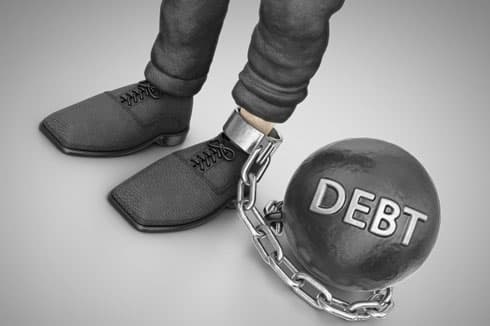Comparing Unsecured and Secured Loans
- A debt consolidation loan can be secured or unsecured.
- Secured loans require collateral.
- Unsecured loans usually have high interest rates.
- Start your FREE debt assessment
Need a Consolidation Loan or Money for Home Repairs? Read About Your Options.
You may be considering a loan to consolidate credit card debt, or perhaps a loan to repair or remodel your home. This article discusses your loan options, and contains a links to learn more about your loan and grant options.
In general, loans fall into two categories:
- Secured
- Unsecured
A secured loan uses your property as collateral, which is called the security. If you default, the lender claims the security to pay off your loan. Although the interest rate on a secured loan is lower than an unsecured loan, the security is at risk if you fail to make the monthly payments. Typical secured loans include mortgages, vehicle loans, or pawn shop loans.
An unsecured loan is also called a personal loan or signature loan. It requires no collateral. Unsecured loans command higher interest rates than secured loans. Typical unsecured loans include credit cards, student loans, and payday loans.
With an unsecured note, the lender takes much more risk, as they have few ways to recoup their losses in case of default. This results in a higher interest rate. However, some banks and credit unions offer unsecured consolidation and home repair loans, depending on the borrower's credit score. Speak with local lenders to learn what unsecured loans they offer.
Home Equity
In a debt consolidation loan, you exchange one loan for another. The most frequent form is taking out a mortgage loan, which usually carries a lower interest rate and may be tax deductible, to pay off high interest rate credit card debt. If you own a home with equity, you may want to consider a cash-out mortgage refinance.
Be aware that shifting unsecured debt to secured debt can create a volatile situation. If there is ever a chance that you cannot afford the new mortgage payment you are now putting yourself at risk of foreclosure! In the case of a debt relief loan, most mortgages are 30-year loans, which means that the total cost and the time to debt freedom could be very high, but the monthly payment will be lower than other options and there is generally no credit rating impact.
Summary
You may qualify for an unsecured consolidation loan to pay off your debts, but if you have no collateral, such as a home, the interest rate would probably approach that of your existing credit cards. Another option is a grant or loan from the federal government. See the Bills.com resource Home Repair Loans and Grants for a list of 10 government loans and grants.
To read more about cash-out refinances, visit the Bills.com refinance page or the 4 Reasons for a Cash-Out Refinance article.
Free up cash each month with Freedom Debt Relief

Ozzy S., Freedom client
“Right away, I had more money each month because of program costs so much less than what I was paying on my minimums.”
Actual client of Freedom Debt Relief. Client’s endorsement is a paid testimonial. Individual results are not typical and will vary.


Can I get a debt consolidation loan with a credit score of 640? I owe about 8500 and want one monthly payment at a lower interest rate than my credit cards.
I recommend that you look into the following options:
1. Peer to Peer lenders like Lending Club and Prosper.com and Prosper.com 2. FreedomPlusGet proposals from each and see if the monthly payment makes sense and if the rates are lower than what you have on your credit cards. You won't get the best interest rate they offer with a 640 FICO score, but you should qualify for some offer.